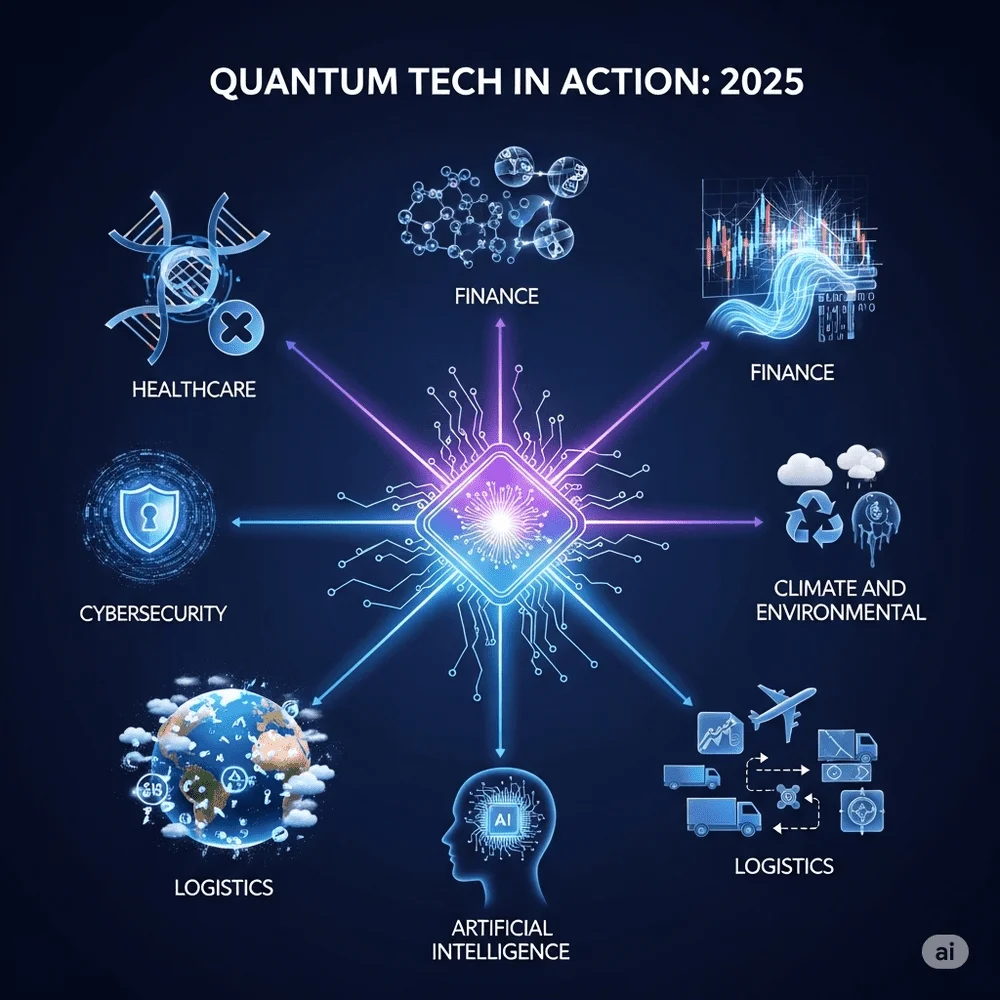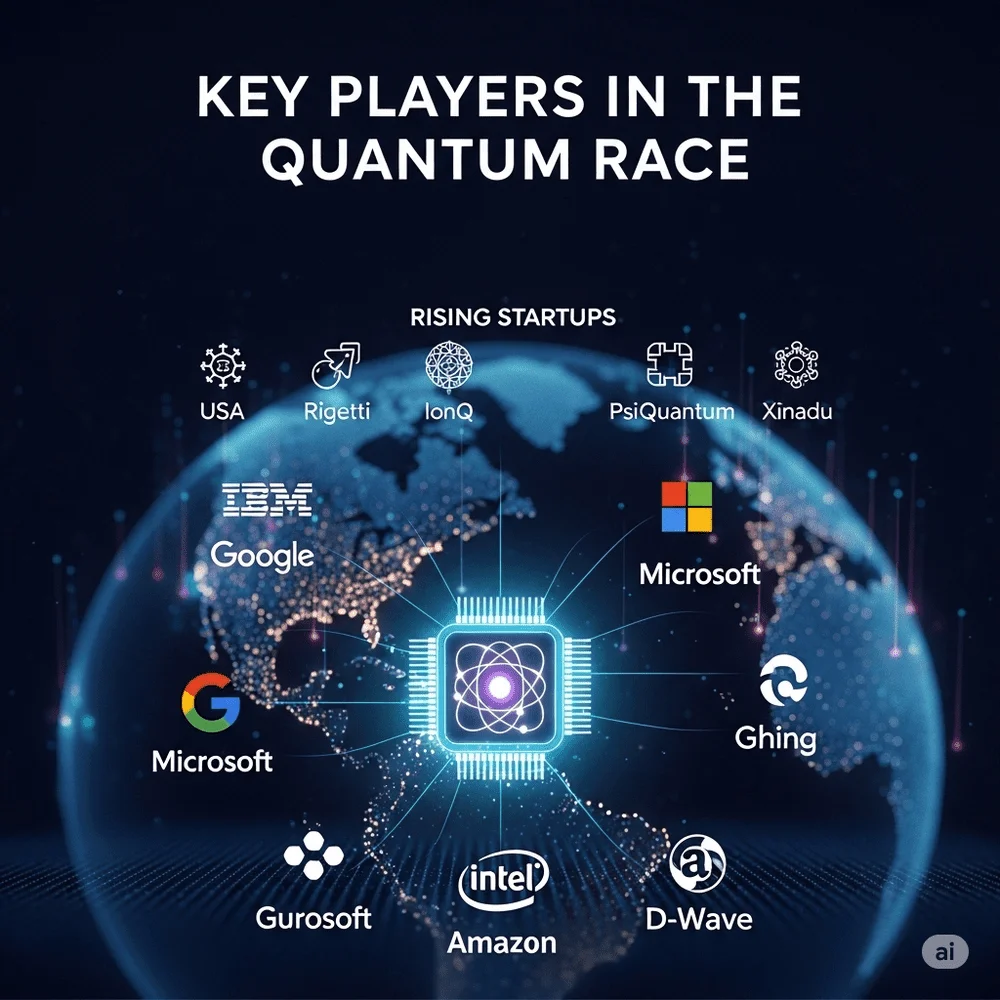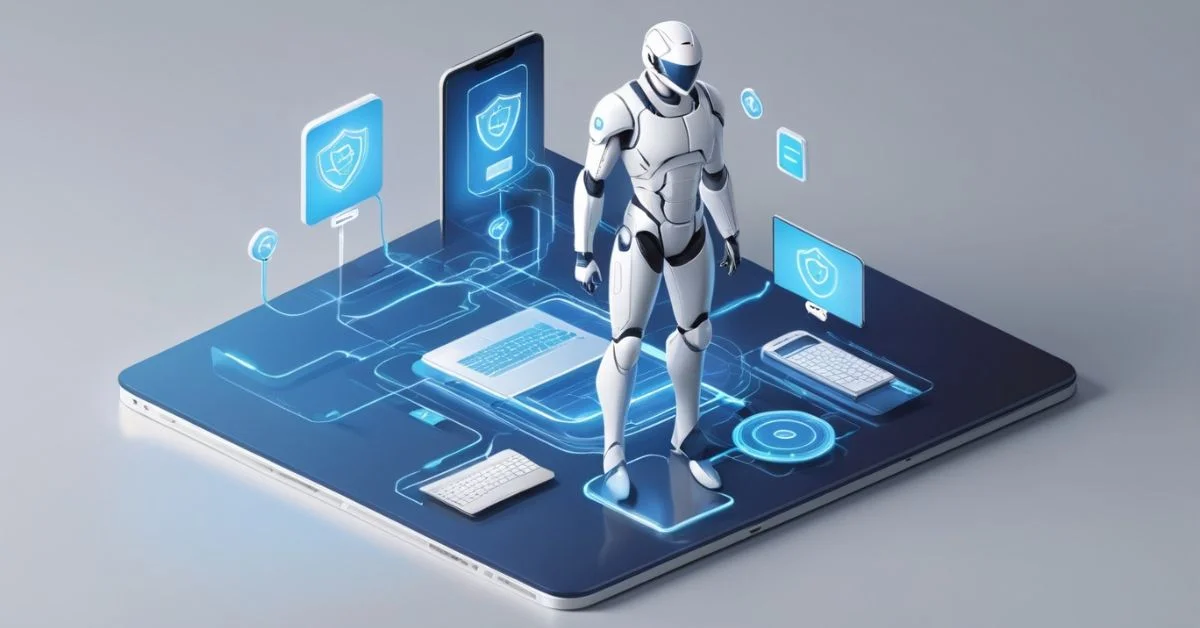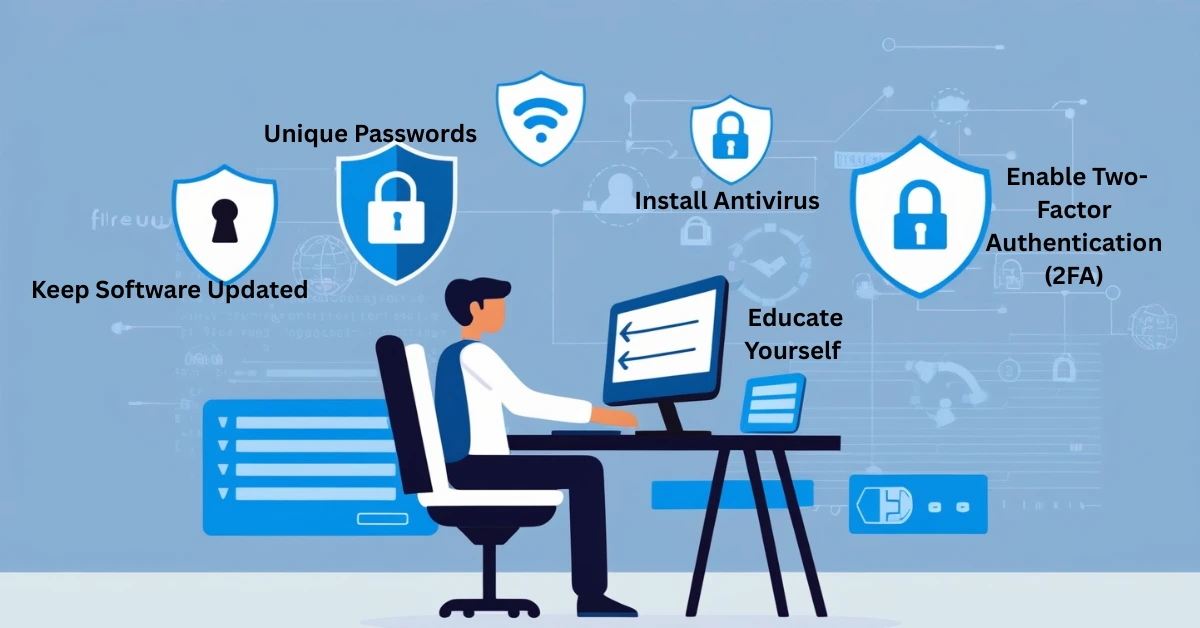Quantum computing is no longer a futuristic idea. In 2025, it will become a real and powerful tool, moving from research labs into industries, universities, and even cloud platforms. From solving complex scientific problems to improving artificial intelligence and data security, quantum computers are reshaping how we think about computing and its role in our lives.
This article explains what quantum computing is, why it matters today, and how it’s being used around the world in 2025, all in simple, easy-to-understand language.
What Is Quantum Computing?
Quantum computing differs from traditional computing by using qubits instead of bits. Qubits can exist in multiple states at once (superposition) and influence each other instantly (entanglement). These unique properties enable quantum computers to handle complex problems and large data sets far faster than classical systems.
Why 2025 Is a Big Year for Quantum Computing?
Over the last few years, scientists and tech companies have made big progress. In 2025, we’re seeing some exciting milestones:
- 1,000+ Qubits: Some quantum systems now have over 1,000 qubits, a major increase in processing power.
- Lower Error Rates: Better error correction is making quantum results more accurate.
- Cloud Access: Anyone with internet access can now run quantum programs through platforms like IBM Quantum, Azure Quantum, and Amazon Braket.
- AI Integration: Quantum systems are helping train larger, faster artificial intelligence models.
- Government Support: Countries around the world are funding quantum education, research, and innovation.
Quantum computing is finally moving beyond theory into real-world applications.
How Quantum Computing Is Being Used in 2025?
Even though the technology is still young, quantum computing is already helping in several industries:
1. Healthcare and Medicine
Quantum computers help researchers simulate molecules faster than ever. This means quicker drug discovery and deeper understanding of diseases.
- Accelerate the development of innovative drugs and vaccines.
- Predict how treatments interact with human genes
- Explore cancer and virus behavior in new ways
Leading pharmaceutical companies such as Pfizer and Roche are leveraging quantum-based models to reduce the time needed for discovering effective treatments.
2. Finance and Banking
Banks deal with massive data and complex models. Quantum computing is helping with:
- Portfolio optimization
- Risk analysis in trades
- Fraud detection using pattern recognition
In 2025, firms like JPMorgan Chase are building their quantum teams to stay ahead.
3. Cybersecurity
Quantum computers can break traditional encryption, but they also help create stronger, quantum-safe systems.
- Testing and building post-quantum encryption
- Protecting government and private data
- Preparing for quantum cyber threats
Governments are now testing quantum-resistant cryptography to secure critical infrastructure.
4. Climate and Environment
Addressing climate change remains one of the most critical challenges faced worldwide today. Quantum computers help by:
- Simulating weather patterns
- Modeling climate impact faster and more accurately
- Finding new ways to cut carbon emissions
Scientists are using quantum systems to build better energy storage solutions, like improved solar batteries.
5. Artificial Intelligence
Quantum computers and AI are working together in 2025 to make smarter systems.
- Faster training of AI models
- Better handling of massive datasets
- Improving language translation, facial recognition, and self-driving tech
Quantum-AI partnerships are a hot trend this year, with several startups and tech giants investing heavily.
6. Logistics and Transportation
Airlines, shipping, and delivery companies are using quantum algorithms to:
- Optimize routes
- Cut down fuel use
- Save time and resources
Companies like DHL and FedEx are experimenting with these systems to improve their global networks.
Key Players in the Quantum Race
Several major companies and countries are leading the way in quantum computing:
- IBM: Offers cloud access and the Qiskit platform for developers.
- Google: First to achieve “quantum supremacy” and still pushing hardware limits.
- Microsoft: Building full-stack solutions via Azure Quantum.
- Intel: Focuses on high-performance quantum chips.
- Amazon: Offers access to multiple quantum machines through AWS Braket.
- D-Wave: Specializes in quantum annealing for optimization problems.
- Startups: Rigetti, IonQ, PsiQuantum, and Xanadu are gaining global attention.
On the global front:
- USA, China, and the EU are investing billions in national quantum research.
- Universities and labs are offering new training programs and partnerships.

Challenges That Still Remain
Even with recent advancements, quantum computing continues to face several significant hurdles.
- Fragile qubits: They easily lose their state, which leads to errors.
- Cooling needs: Most systems must operate near absolute zero temperature.
- High cost: Building and maintaining these machines is very expensive.
- Lack of experts: There aren’t enough trained professionals in quantum computing.
- Software is still maturing: Tools for quantum programming are improving, but are still limited.
However, the progress made in 2025 gives hope that these problems will soon be solved.
How Can You Get Involved?
You don’t need to be a scientist to explore quantum computing in 2025. There are many ways for students, developers, and curious minds to get started:
- IBM Quantum Experience: Run quantum code in the cloud.
- Microsoft Azure Quantum: Access different quantum systems and simulators.
- Qiskit and Cirq: Open-source tools to help you learn quantum programming.
- Free Courses: Platforms like Coursera, edX, and YouTube offer beginner-friendly tutorials.

By learning now, you’ll be ready for the jobs and innovations of the future.
What the Future Holds?
Quantum computing is growing fast, and the years ahead will likely bring even more breakthroughs:
- Commercial applications: From pharma to finance, more companies will use quantum regularly.
- Hybrid systems: Quantum and classical computers working together for faster results.
- Post-quantum encryption: Stronger security tools to protect personal and business data.
- AI+Quantum tools: Smarter digital assistants, search engines, and recommendation systems.
Quantum computing isn’t expected to replace classical systems but will serve as a powerful companion in solving highly complex problems beyond today’s computing limits.
Final Thoughts
Quantum computing in 2025 has moved from theory to reality, driving major changes in healthcare, cybersecurity, and AI. As this powerful technology rapidly evolves, it’s shaping the future of industries and innovation. Now is the time for students, tech enthusiasts, and leaders to learn and engage with quantum tech as it becomes a key force in tomorrow’s world.
Similar Topic: Quantum AI Trading



